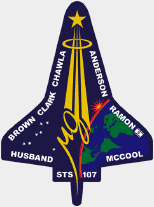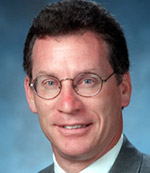[Previous entry: "In memoriam"] [Next entry: "Aurora"]
01/02/2004: "From STS-107 to space tourism regulations"
 On Saturday, 1 February 2003, I went into town to meet a friend and we had lunch together. We spent much time chatting about many things, discussing many ideas and enjoying each other's company. I thorougly enjoy such conversations and they have been a highlight of my studies here in St. Gallen. Discovering interesting personalities and challening each other's ideas over a nice lunch. After the roughly 4 hours that lasted the lunch, we parted and I rushed home to watch the post-mission interview and landing videos of STS-107.
On Saturday, 1 February 2003, I went into town to meet a friend and we had lunch together. We spent much time chatting about many things, discussing many ideas and enjoying each other's company. I thorougly enjoy such conversations and they have been a highlight of my studies here in St. Gallen. Discovering interesting personalities and challening each other's ideas over a nice lunch. After the roughly 4 hours that lasted the lunch, we parted and I rushed home to watch the post-mission interview and landing videos of STS-107.
As I connected to NASA TV and launched my web browser, I got CNN's breaking news e-mails, stating, "NASA loses communication with space shuttle Columbia shortly before scheduled landing" and a few minutes later, "Space shuttle Columbia breaks up over Texas. Residents urged to stay away from debris". I then saw the early pictures of the debris as the massive recovery operation was set in motion.
I always watched the space missions as much as I can, especially during the EVAs or spacewalks. I was there when Jim Voss dropped a tool in the void by accident. I watched them often relax for a few minutes before reentering the ISS, contemplating Earth with their perspective. The astronauts' awe and joy was contageous and I shared in their wonder at our planet's beauty from above. This time, the astronauts had died. I vaguely remembered Challenger in 1986 because at that time, I was in my Dad's office (I was 6) and a colleague had given me a miniature Shuttle to play with while waiting for my Dad to come back. This time, having followed the latest misisons so closely, I felt the loss personally and watched Ron Dittemore for his daily news briefing he gave for a week.
This time, the astronauts had died. I vaguely remembered Challenger in 1986 because at that time, I was in my Dad's office (I was 6) and a colleague had given me a miniature Shuttle to play with while waiting for my Dad to come back. This time, having followed the latest misisons so closely, I felt the loss personally and watched Ron Dittemore for his daily news briefing he gave for a week.
Today, America is embarking on an ambitious space programme focusing nearly exclusively on manned spaceflight, as the ESA and space agencies in other nations are talking about further manned space missions. On Friday, the World Street Journal Europe published an article on its front page about the Federal Aviation Administration and US lawmakers working on regulation for commercial space tourism, facing multiple commercial projects and initiatives such as X-Prize. When the state starts regulating, it means the issue is already well under way.
X-Prize is a $10 million competition to develop small, privately funded reusable launch vehicles. The aim is the build what in many ways are scaled-down, greatly simplified cousins of the space shuttle. Most will take off and land like traditional airplanes, but received an additional boost from some type of rocket.
Issues under regulation are permits to start testing reusable spacecraft, required training programmes for crew members and necessary insurance and waivers. The future of space tourism is taken seriously by the US government. After last year's tragedy of STS-107, one can only hope that beyond the broad vision, reorganisation of NASA and talks of regulation, we will have the discipline of getting things done - beyond presidential elections or other particular interests.


